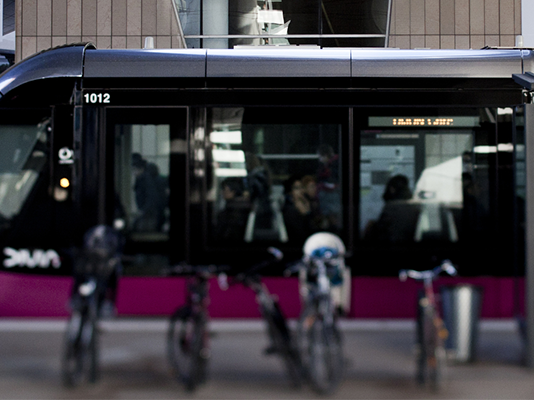As a responsible and committed actor, we deploy a sustainable approach to purchasing in the 15 countries where we operate, notably by using entities from the Solidarity Economy.
Keolis, a socially responsible buyer
For many years, we have chosen to work with actors from the Solidarity Economy (SE) for the purchase of services. This policy is in line with our differentiating vision of mobility as expressed in our corporate purpose and allows us to take firm action to promote the economic development and social inclusion of local communities. By working with disability-friendly companies, associations focused on social integration or cooperatives, for example, we help to support locally-based actors and to promote the professional integration of people who face particular difficulties finding employment.
What is the Solidarity Economy?
In France, the Solidarity Economy (SE) is a sector defined by law which brings together different types of organisations (associations, cooperatives, foundations, etc.) whose methods of operation and activities are founded on the principle of solidarity and social utility. It includes, in particular, disability-friendly companies employing people with disabilities, or entities working to promote professional integration. Although the SE does not have a legal equivalent in other countries, a large number of actors subscribe to its values and principles.
A renewed ambition in 2021
To go a step further and respond more effectively to the growing demand from public transport authorities to support inclusion and solidarity in our local communities, in 2021 we worked on a common definition of SE with our international subsidiaries that went beyond local regulations, with the aim of sharing their experiences and good practices and moving forward together in terms of the Keolis Group’s values.
2021 key figures
20 million euros of purchases from the SE in France
13 million euros in the United States
Numerous initiatives by our subsidiaries to support the Solidarity Economy
In France
• In Lille, our subsidiary Ilévia Keolis Lille subcontracts the majority of its passenger mediation work to partners in the SE sector, who employ people on social integration schemes. In recent years, some of these missions have led to direct recruitment for positions as drivers or inspectors.
• In the Languedoc region (South of France), part of our activity is subcontracted to local transporters grouped together in a cooperative, making it easier for them to enter into contracts with Keolis.
• In France, the use of temporary work agencies under a framework agreement has made it possible to hire employees undergoing professional integration or with a disability. In 2021, this resulted in a total of 75,000 hours worked.
• Each year, Keolis entrusts the printing of its annual report to Imprimerie Solidaire, the first disability-friendly industrial printing company in France, where 80% of the employees are disabled.
Since 2015, Keolis has been a partner of Handeco, an association that promotes hiring in the supported employment sector. Through this partnership, our subsidiaries have access to an online directory of companies in the SE sector and a dedicated platform where they submit their calls to tender.
Abroad
• In the United States, as required by transport sector regulations, Keolis uses DBEs (Disadvantaged Business Enterprises), small for-profit companies certified by the authorities, in which people from socially and economically disadvantaged groups have at least 51% of ownership and control the management and business operations. Our subsidiaries support DBEs beyond contractual obligations. Keolis Transit America, for example, has adjusted its billing frequency to help a DBE cleaning company meet its cash flow needs. Keolis Transit America also assists service providers in the process of obtaining DBE certification.
• Similar initiatives exist in other Keolis Group subsidiaries, such as in Sweden and Denmark, where cleaning companies employing people with disabilities are used, and in Australia, where our subsidiary Keolis Downer works with local companies to create jobs in Aboriginal communities.
